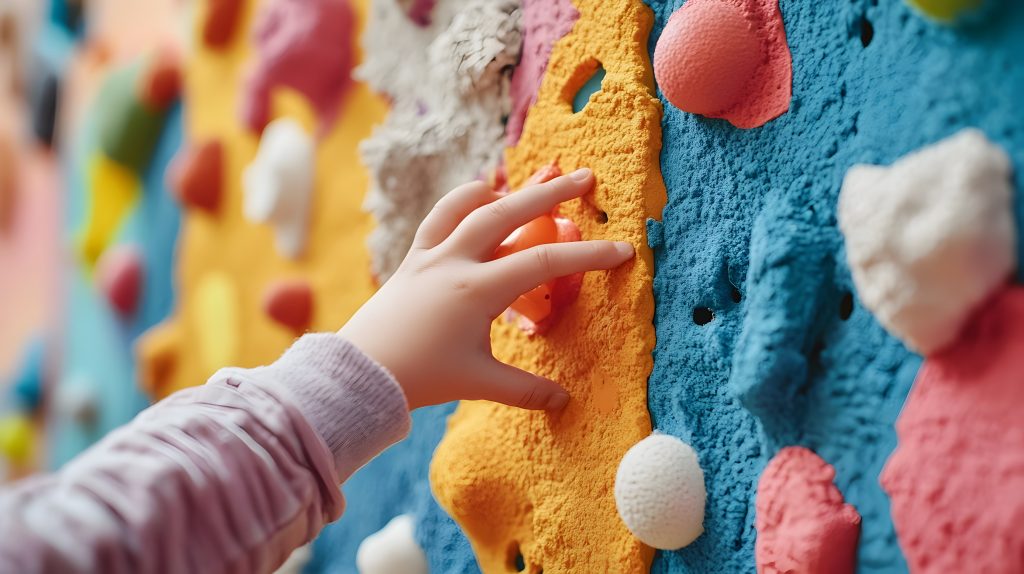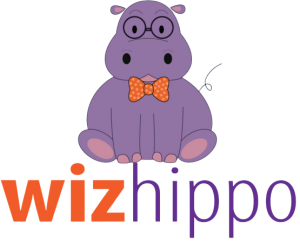
Supporting children with special needs in early education requires thoughtful, inclusive practices that ensure every child receives the care, attention, and tailored learning experiences they need to thrive. In early childhood, it is critical to foster a welcoming, adaptive environment where children with diverse abilities can participate fully and meet developmental milestones at their own pace.
Inclusive education means creating an environment where children with special needs feel valued and empowered to succeed. This includes developing individualized plans, fostering collaboration between educators and parents, and using tools that help track progress and communicate effectively. In this blog, we’ll explore best practices for supporting children with special needs in early education settings, and how daycare management software like WizHippo can assist educators and parents in providing the best care and education for every child.
The Importance of Inclusion in Early Education
Inclusive education is not just about integrating children with special needs into the classroom; it’s about ensuring they feel accepted and can actively participate in learning alongside their peers. Research has shown that inclusive environments benefit all students—those with and without disabilities—by promoting empathy, communication, and socialization.
For children with special needs, early intervention is key. The sooner their unique learning needs are addressed, the more support they receive to reach their full potential. An inclusive approach ensures that every child feels respected and valued, regardless of their abilities.
Best Practices for Supporting Children with Special Needs
1. Develop Individualized Education Plans (IEPs)
Each child with special needs requires an individualized approach to learning. This is typically outlined in an Individualized Education Plan (IEP), which details the child’s learning goals, any necessary accommodations, and the strategies educators will use to meet those goals.
- Collaboration with Specialists: IEPs are often developed in collaboration with specialists such as speech therapists, occupational therapists, or behavioral therapists. These experts provide valuable insights into how to best support the child’s development.
- Parental Involvement: Parents play an essential role in creating and monitoring their child’s IEP. Regular communication between parents and educators ensures that the child’s progress is being tracked and adjustments to the plan are made as needed.
WizHippo’s management system allows educators to track IEPs digitally, ensuring that all team members have access to the child’s learning goals, milestones, and progress reports. This seamless integration helps staff stay updated and ensures consistency in care and instruction.
2. Adapt the Learning Environment
An inclusive classroom should be adaptable to meet the needs of children with different abilities. This includes everything from the physical setup of the classroom to the types of activities and materials used.
- Sensory-Friendly Spaces: Children with sensory sensitivities may benefit from quiet areas where they can take breaks if they feel overstimulated. Classrooms can incorporate soft lighting, calming colors, and tactile materials to create a soothing environment.
- Adaptive Learning Tools: Use adaptive tools such as communication boards or assistive technology to support children with physical, speech, or cognitive challenges. For example, tablets with speech-generating apps can help non-verbal children communicate more easily with their peers and teachers.
By using WizHippo, educators can track which adaptive tools or accommodations are working for each child, ensuring that every child’s unique needs are met without disruption to the learning environment.
3. Foster Peer Interaction and Social Inclusion
Children with special needs often benefit from increased social interaction with their peers. Facilitating peer relationships helps children develop social skills and promotes an understanding of diversity and empathy among all students.
- Buddy Systems: Pairing children with special needs with a peer can help foster social bonds. This buddy system promotes teamwork and mutual respect, allowing children to support each other in daily activities.
- Group Activities: Create inclusive group activities that encourage participation from all students, regardless of ability. This might include art projects, sensory play, or group storytelling, all of which can be adapted to suit various learning needs.
WizHippo’s communication tools can help educators document and share moments of social interaction with parents, showing how their child is developing important social skills. This transparency helps parents feel more involved in their child’s social growth.
4. Provide Consistent Structure and Routine
Children with special needs, particularly those on the autism spectrum, often thrive in structured environments with predictable routines. A consistent daily schedule helps reduce anxiety and allows children to feel more in control of their environment.
- Visual Schedules: For children who have difficulty understanding verbal instructions, visual schedules can help them anticipate what will happen throughout the day. This might include pictures or symbols representing each activity (e.g., snack time, outdoor play, nap time).
- Clear Transitions: Help children transition from one activity to the next by giving them clear warnings or signals. For example, using a timer or a specific sound can signal that it’s time to move from one task to another.
With WizHippo, teachers can upload and share daily schedules with parents, giving them insight into their child’s day and helping them reinforce routines at home.
5. Communicate Regularly with Parents
Parent communication is vital when supporting children with special needs. Regular updates on a child’s progress, behavior, and any challenges they’re facing can help both educators and parents work together to adjust strategies as necessary.
- Progress Reports: Provide detailed progress reports that show how the child is advancing toward their developmental goals. Include specific examples of achievements, as well as areas where additional support might be needed.
- Daily or Weekly Notes: Send home daily or weekly notes that summarize the child’s behavior, mood, and any important observations. This helps parents stay connected with their child’s experiences at daycare or school.
WizHippo offers a parent communication portal where educators can send updates, progress reports, and even photos, providing parents with real-time information about their child’s progress. This transparency helps build trust between educators and parents, ensuring a collaborative approach to the child’s education.
6. Utilize Data to Track Progress and Adjust Plans
For children with special needs, tracking progress is crucial. Regular assessments help ensure that the child’s IEP is working and that they are making strides toward their learning goals.
- Behavioral Tracking: Use data to track specific behaviors or responses to different learning strategies. For example, if a child struggles with transitions, note when and why challenges occur, and adjust strategies accordingly.
- Assess Learning Milestones: Regularly assess whether the child is meeting their developmental milestones, and adjust the IEP as needed to reflect their progress or any new challenges.
WizHippo’s data-tracking tools allow educators to monitor each child’s progress in real time, documenting everything from academic milestones to behavioral patterns. This data can be easily shared with parents and specialists, making it easier to adjust plans as needed.
How WizHippo Can Support Children with Special Needs
WizHippo is a comprehensive daycare and school management platform that offers features specifically designed to support children with special needs. Here’s how WizHippo can help:
- IEP Tracking and Management: Easily create, update, and track individualized education plans (IEPs) for each child. WizHippo allows educators to monitor progress toward specific goals, ensuring that children with special needs receive the attention and support they require.
- Parent Communication Tools: WizHippo’s parent portal enables educators to communicate directly with parents, sending updates, progress reports, and photos. This ensures that parents are always informed about their child’s development and any adjustments to their learning plans.
- Progress Tracking and Data Analytics: WizHippo offers robust data-tracking tools that allow educators to monitor each child’s academic and social progress. This data-driven approach ensures that children with special needs are meeting their developmental goals, and adjustments to their learning plans can be made in real time.
- Resource Management: WizHippo helps educators manage and organize the use of adaptive tools, sensory materials, and other resources that support children with special needs.
By using WizHippo, daycare centers and schools can provide a more inclusive, supportive environment for children with special needs, while streamlining the communication and data management necessary to track progress effectively.
Conclusion
Supporting children with special needs in early education requires a thoughtful, inclusive approach that combines individualized planning, adaptive environments, and strong communication between educators and parents. By implementing best practices for inclusion and using technology like WizHippo to track progress and communicate effectively, early education centers can ensure that every child—regardless of ability—has the opportunity to thrive.
Want to learn more about how WizHippo can support children with special needs in your daycare or preschool? Visit WizHippo today to see how our platform can enhance your inclusive practices and streamline your school’s operations.

Stay Updated with the Latest in Daycare Management!
Subscribe to our newsletter to receive expert tips, industry news, and special offers straight to your inbox. Plus, get exclusive access to free resources and guides to help you streamline your childcare operations.
